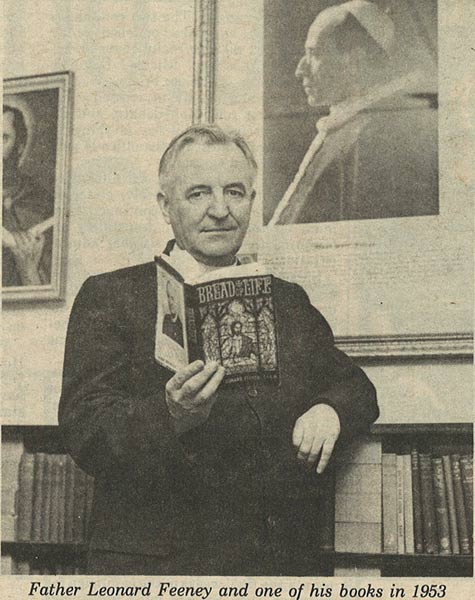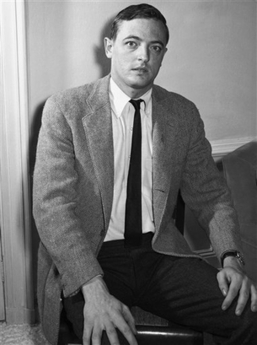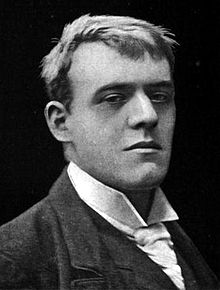 |
| source: newliturgicalmovement.org |
Progressing with our exposé on the "Jansenism" of the local rites of France alleged by those who wished to effect the abandonment of those uses in favor of the Tridentine Roman liturgy. Thus far no discernible traces of Jansenism have been found in the rites of Paris or Lyon.
What has been found is a series of deviations and differences from the Roman rite which vary in their contribution to the Church catholic and their accord with custom. As mentioned the Gallican and neo-Gallican rites omit the previously utilized Roman psalter in the propers in favor of the Gallican Vulgate translation of St. Jerome. Similarly, many proper texts which once matched the Roman rite have changed, sometimes by evolution and sometimes by outright alteration. Many of the new prayers are quite beautiful and reflect the vibrant religious and literary life of the age. Others are vividly visual and replete with excessive talk of immolation and other eccentric wording. While many of the contrasts between the French rites and the Roman mother rite can be said to be in poor taste, none of them thus far show signs of heresy.
In our series let us continue with two sets of propers for both major feasts and from the Commons. Let us examine Epiphany and the Assumption feasts as well as the Common for a virgin martyr and the votive Mass of the Holy Trinity.
Epiphany
The feast of Epiphany is the third most important in the whole of the Catholic Church. Pascha relives the Resurrection from the dead of our Lord and Pentecost celebrates the sending of the Holy Spirit upon the Apostles who in turn used this dwelling presence of God to multiply the Church throughout the world. Epiphany celebrated the "appearing" of God in many venues: the appearance of the Christ child to the magi, marking the first time Gentiles ever met God; the changing of water into wine during the wedding feast at Cana manifested Jesus' divine power over matter; and the feast in general recalls Christ's spiritual birth in eternity (indeed some second century writers opposed celebrating a lesser birth in time); on the octave day the Baptism in the Jordan is celebrated, wherein the fullness of the Trinity was finally revealed to mankind and Christ began His public ministry. After Pentecost no octave is as rich in content and beauty as the eight days of Epiphany.

This Mass differs substantially from the Roman rite, in the synaxis sharing only the Collect and the Gospel pericope. The Introit in the Roman tradition and in the Lyonese Missal do have the same theme, that the Lord of all has come to dwell and rule among men, "Adore the Lord in His holy court, let the heavens rejoice and the earth be glad, and may they say among the nations: the Lord reigns" (Introit, taken from psalm 95). The epistle (Ephesians 2:8-18) reminds the faithful that they are saved by faith and that faith is a gift from God, not a human fabrication or action. Faith was given to the world by God, faith which was known only to the Jews—and even then only in part—before the coming of Christ and His salvific work which manifested God to all mankind. Is this not the purpose of the Epiphany?
The Roman gradual mentions Jerusalem, surge et illuminare, Ierusalem, the type of the Church and of heaven. The Lyonese texts eschew Jerusalem and call upon the "ends of the earth" that they "may be converted unto the Lord." These variations are not of faith, but of perspective. The Lyonese Mass, in line with St. Paul's epistle, expounds the universality of God's revelation in His appearance to men, even unto Gentiles. The Roman Mass instead celebrates the fulfillment of the type that is Jerusalem in the Church and also the quasi-type of Heaven that is the Church.
The real treasure of this Mass however is the sequence Ad Iesum accurrite:
"Run to Jesus,
Lower your hearts
To the new king of Men.
"The star broadly preaches,
And faith inwardly points
To the Redeemer of all.
"Here offer gifts
giving freely,
but given in the heart.
"This will be the most accepted
Offering of the Savior,
A sacrifice of the mind.
"Gold makes love
and the myrrh of life makes holiness,
And may frankincense be vows of the heart.
"The King is known by gold,
The Man by myrrh is nurtured,
And by incense He is the God of all nations.
"Judea, be joyful people
And do not envy the Gentiles to whom
Was revealed the mystery.
"After the shepherds,
The faithful Magi
Join in the consort.
"Who to the Jews advocates
Christ, he gathers peoples
Under one house.
"Bethlehem is today
All of the Church
Newly born.
"Christ reigns in hearts,
And in the defeat of rebels
He makes His domain. Amen."
(I apologize for the poor literary quality of the translation, it is my own)
The Gospel, Offertory, and Secret are identical with the Roman rite. The post-Communion oration builds on the Pauline text earlier, thanking God Who in His "ineffable mercy called us from the shadows and dignified us in the admirable light" for the gift of faith. Perhaps this prayer, or prayers similar to it, aroused suspicions of Jansenism, which builds upon the Calvinistic interpretation of St. Augustine's concept of free will. Under the Calvinistic and Jansenistic scheme of free will, faith is a grace that God gives to the individual which he cannot chose to accept or decline. The person is very much the chattle of God. The Catholic Church rejects this notion of grace and faith. The oration in question certainly could be read in a Jansenistic fashion when perceived in a vacuum. In context the prayer belongs to a series of prayers and texts that thank God for the gift of faith, particularly for giving it to all nations and not just to the Jews as He had in previous times.
Verdict: orthodox.
Assumption of the Blessed Virgin Mary
The Roman Mass for this day, prior to 1951, was one of the most beautiful Masses of the entire year, beginning with the Gaudeamus omnes Introit. Lyon calls for a procession prior to the Mass during which verses of the Magnificat are sung continuously. The Introit is the rather dull Tenuisti manum dexteram meam. Interestingly, the Collect for the feast is the same as in Sarum and in the Dominican rite:
"We beseech You, Oh Lord, let us be aided continually by the sacred feast of this day, whereon the Holy Mother of God underwent death in this world, and yet could not be held by the chains of death, who did bring forth Your Son Our Lord."
The Collect is something of a two-for-one, calling for the above prayer on the feast and the beautiful Famulorum Collect of the Roman rite for days within the Octave and the Octave day. The lesson is taken from the same part of the Johannine Apocalypse where Pius XII's fellow reformers found the Signum mangum Introit for the new Assumption Mass. This passage however has the preceding verse "And the temple of God was opened in the sky and His ark of the covenant was seen in the temple." This underscores Our Lady's importance: she is the new ark of the covenant that carries not the written Word, but the Word Himself; she fulfills the role of the ark and of the Temple; she is a type of the Church and the mother of the Church. She is not a solitary neon blue figurine surrounded in kitsch stars, the sort found in the dollar section of a department store.
 |
| Is it just me or is something different? |
There is a sequence, Plaudamus cum superis, which follows the Marian typology closely. The Gospel is the Lucan account of the Visitation of the Virgin to her cousin St. Elizabeth, the mother of the Forerunner. A unique interpolation follows the Canon of the Mass. After the Libera nos Domine the deacon goes to the Gospel corner, the subdeacon to the epistle corner, the priest genuflect, turns to the people, and the choir sings the antiphon Sub tuum praesidium confugimus. A versicle is sung followed by an oration to the "King of kings" that through the intercession of Mary He may deign to protect the "most Christian king" and those who are under his domain. One wonders why the monarchists in France today have no interest in this rite? The post-Communion again differs from the Roman rite, but is unremarkable.
Votive Mass of the Holy Trinity
This Mass is more or less the Roman Mass with some alterations. The Introit is now Misericordia Domini plena est terra rather than the familiar Benedicta sit Sancta Trinitas. The Collect, Epistle, Gospel, and Secret are the same. The Gradual and Offertory verses as well as the Communion verses have been changed to conform to the emphasis given to the power of the Trinity in the Lyonese Introit, whereas the Roman Introit and proper chants simply repeat "Blessed" in many variations to describe the Trinity. The post-Communion is a wordy [by Latin standards] thanksgiving glorifying the Trinity in the Persons' functions and a Roman lesson in theosis:
"Lord God, Father of Our Lord Jesus Christ, from Whom all fatherhood in heaven and on earth in named, grant to us that through Your Spirit we may be strengthened inwardly in [Your] power, and to know the love of Christ, which is beyond all knowledge, that we may be filled in the fullness of God."
Virgin Martyr
The Roman Office of Virgin Martyrs is my favorite of the Commons. The Mass however is a different matter. The Roman Missal gives two Masses for Virgin Martyrs, as does Lyon. Both Lyonese Masses appear to be variations of the Roman Mass with different Introits. The Collects of both match their Roman counterparts (Deus qui inter and Indulegentiam nobis). The second Mass, Casta generatio, retains the lesson from Ecclesiasticus (the first Mass in the Roman Missal) while the first Mass in the Lyonese rite finds an epistle from 2 Corinthians ch. 10. The Gospel in the first Mass matches the first Roman Mass perfectly. The Secret and the various post-Communions use vivid language describing "the Lamb," of course Christ, which the pure virgin martyrs follow and imitate.
This Common, as with one Mass mentioned in the previous post in this series, demand a thesis that the original sin of the French rites, other than not conforming to centralization, is a mangling of texts. Many of the new texts contribute to the Church's understanding of the holy mysteries. Many restore medieval praxis. And yet some, such as the swapping of the Gospel texts and some spelling errors, display a degree of experimentation that might have demanded an intervention, albeit on a much smaller scale than the virtual suppression of the French rites that occurred under the Ultramontane purge of the liturgical fabric of the Church.
Conclusion
Next week we will wrap up the Lyonese Missal with the votive orations and compare them with the Roman prayers. I do hope some of you are enjoying this series, which I fear might only appeal to specialists.



_Benedict_XIV.jpg)




















